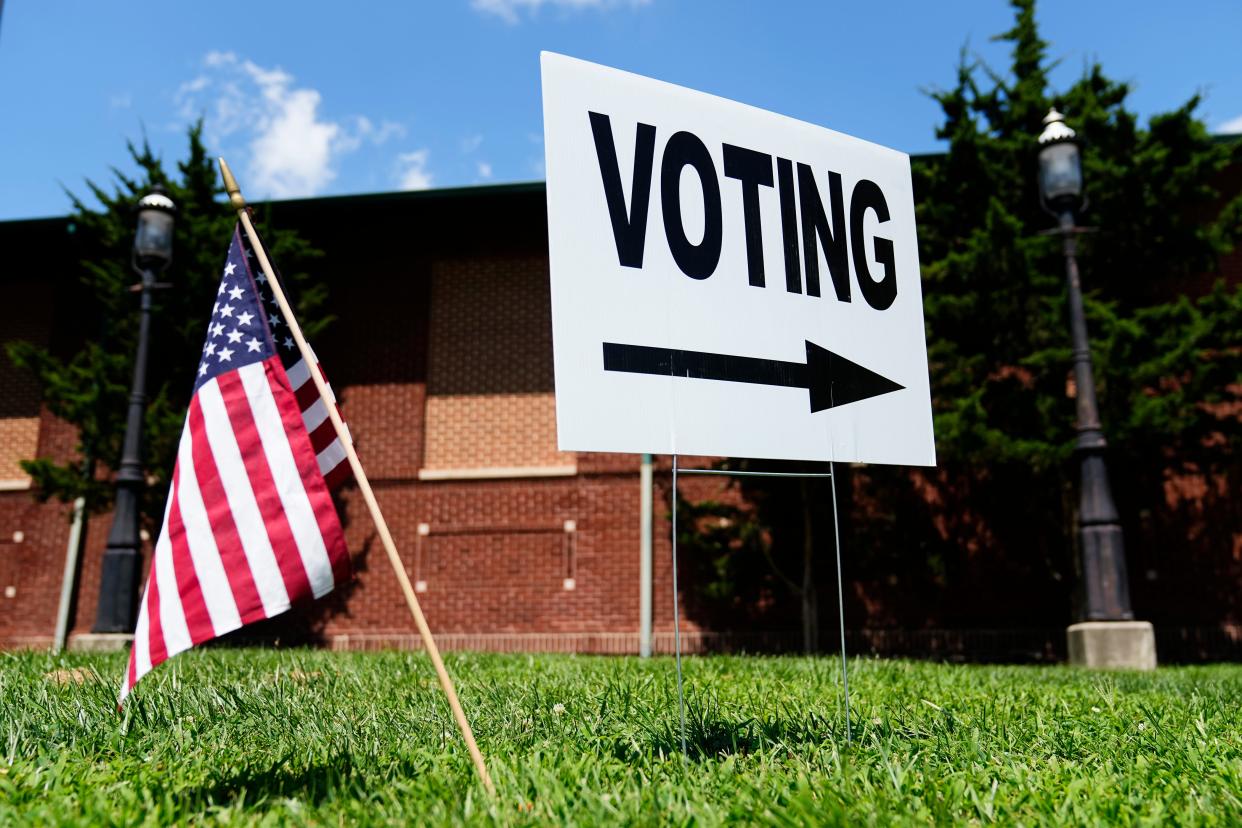Secretary of State Frank LaRose advocates to require party registration for Ohio primaries

- Oops!Something went wrong.Please try again later.
Secretary of State Frank LaRose is rallying around legislation that would require Ohioans to register with political parties to vote in partisan primaries.
But he doesn't expect lawmakers to approve a new system before March, when LaRose is poised to be on the ballot for the 2024 Republican U.S. Senate primary.
"This is not the intention of the bill. I think it would take longer than that to get done," LaRose said during a news conference on Tuesday. "The likelihood of this being in effect for the 2024 primary election is, I think, very low. But it is a change that should happen, and it's got nothing to do with my election. It's about putting a good procedure in place for many, many years to come."
LaRose is running against Cleveland businessman Bernie Moreno and state Sen. Matt Dolan, R-Chagrin Falls, for the chance to take on U.S. Sen. Sherrod Brown, D-Ohio, in 2024.
When a reporter asked if LaRose should advocate for the bill amid a competitive primary, he quipped: "I'm not sure it's a very competitive primary. I'm the clear frontrunner in that election."
How would bill change Ohio's partisan primaries?
LaRose joined state Sen. Michele Reynolds, R-Canal Winchester, and Rep. Thomas Hall, R-Madison Township, to tout a proposal that would require voters to declare their party preference on a registration application or update form. Ohioans would need to be registered with the Republican or Democratic Party at least 30 days before the election to vote in their primaries.
Voters could still be unaffiliated, meaning they would only be able to cast ballots on local or statewide issues.
Reynolds introduced a Senate version of the bill last week, mirroring a measure from Hall unveiled earlier this summer. Rep. Jennifer Gross, R-West Chester, proposed stricter legislation that would require voters to choose or change their party affiliation further in advance.
Proponents contend the state's current system is vulnerable crossover voting or party raiding, when Democrats vote for a perceived weaker Republican candidate or vice versa.
"Party raiding causes a lack of trust in our election system and outcomes," Reynolds said. "It twists the contest to focus only on political outcomes ... instead of the best candidate to emerge in the general election."
Ohio does not require voters to declare a party preference when they register. Instead, voters decide on primary day whether they want a Republican, Democratic or unaffiliated ballot. That choice determines their party affiliation, meaning someone who picked a Republican ballot in 2022 will be considered a GOP voter in 2024.
But that's easy enough to change. The Republican voter could head to the polls next time and say they want a Democratic ballot. State law allows election officials to contest a voter's affiliation in rare cases, but only if they have "personal knowledge" that the voter is from a different party.
The GOP proposal would move Ohio to a closed primary, mirroring policies in New York, Kentucky and several other states. Voting rights advocates say closed primaries promote hyper-partisanship and stifle democracy, particularly at a time when many voters don't want to associate with Republicans or Democrats.
In Ohio, there are 1.3 million registered Republicans, 1 million registered Democrats and 5.7 million unaffiliated voters, according to LaRose's office.
Gov. Mike DeWine said last week he hadn’t reviewed the bill but believes Ohio’s system works well as is.
“I think we have a good election system in the state of Ohio,” he said. “We've seen a few changes in the last year or two. But it's a good system. I don't see the urgent need to change.”
Haley BeMiller is a reporter for the USA TODAY Network Ohio Bureau, which serves the Columbus Dispatch, Cincinnati Enquirer, Akron Beacon Journal and 18 other affiliated news organizations across Ohio.
This article originally appeared on The Columbus Dispatch: Secretary of State Frank LaRose backs Ohio closed primary bill

